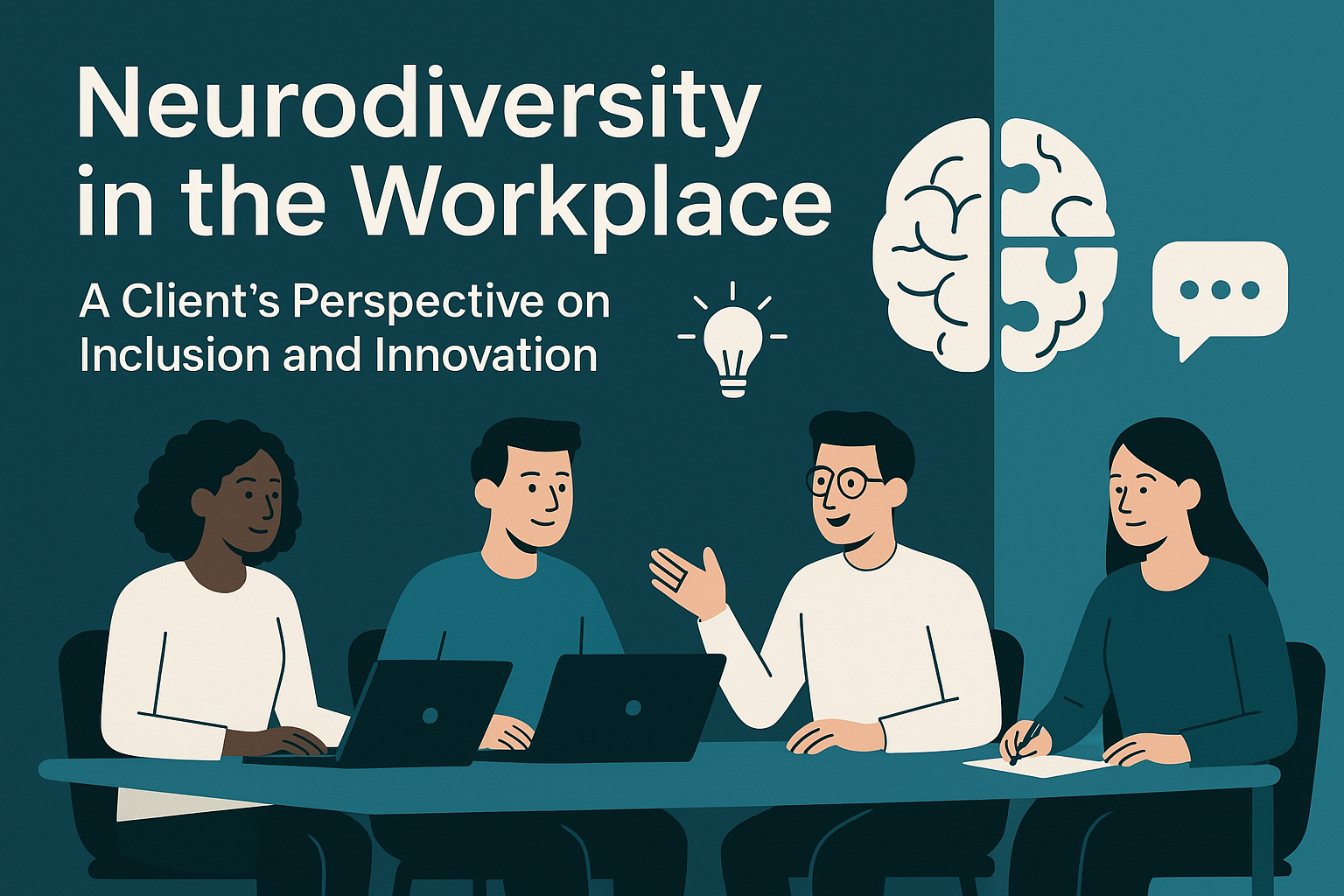
It’s estimated that around one in seven people in the UK are neurodivergent. With such a significant portion of the population representing diverse ways of thinking, it’s no surprise that neurodiversity in the workplace is becoming a key focus for organisations striving for inclusivity, innovation, and performance.
This ADHD Awareness Month, we’re highlighting why it makes business sense for clients to recognise and support employees with neurological differences (including ADHD, autism, dyslexia, and dyspraxia). Embracing neurodiversity brings not just social value, but real, measurable advantages for Professional Services Firms.
Why neurodiversity should be embraced?
Enhanced Innovation and Creativity
Neurodiverse individuals often approach challenges from a different angle, leading to fresh ideas, new insights, and creative solutions. By fostering a neurodiverse workforce, clients can tap into unique perspectives that fuel innovation and help them stay ahead in a competitive market.
Improved Retention and Job Satisfaction
When employees feel understood and supported, they’re more engaged and loyal. Clients who invest in neurodiversity benefit from reduced turnover, stronger engagement, and a more motivated workforce that truly feels valued.
Increased Productivity and Performance
Many neurodivergent individuals excel in areas such as attention to detail, pattern recognition, and analytical thinking. By aligning roles with these strengths, organisations can unlock higher productivity and performance, whether that’s a fast-paced role ideal for someone with ADHD or a detail-oriented position suited to someone with autism.
Legal and Ethical Responsibility
Inclusive hiring practices are fundamental. By proactively embracing neurodiversity, clients not only meet legal standards but also demonstrate corporate social responsibility (CSR), showing they’re forward-thinking, ethical, and people-focused.
Attracting and Retaining Top Talent
Neurodiversity represents a largely untapped talent pool. Inclusive hiring practices help clients access exceptional individuals who may otherwise be overlooked, often those with outstanding problem-solving, logical reasoning, or technical skills. Companies like Microsoft have shown how neurodiversity hiring initiatives can lead to innovation and attract world-class talent.
Stronger Brand Reputation and Client Relationships
In today’s world, people care about how businesses treat their employees. Organisations that embrace neurodiversity are seen as progressive, empathetic, and socially responsible, strengthening relationships with clients, partners, and the public. Brands like Ernst & Young have demonstrated that a public commitment to neurodiversity not only improves recruitment but also enhances brand reputation.
Conclusion:
More and more of our clients are recognising that embracing neurodiversity isn’t only the right thing to do, it’s a powerful business strategy. Neurodiverse employees contribute creativity, focus, and new perspectives that fuel innovation and strengthen workplace culture.
This ADHD Awareness Month, let’s continue to celebrate, support, and empower neurodiverse talent.



